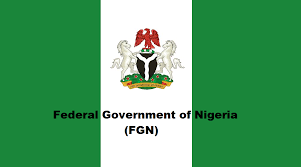A significant surge in global demand for Nigerian non-oil products, including within the African region, has earned the country $3.225 billion in export value during the first half of 2025. This marks a 19.59% rise from the $2.696 billion recorded in the same period of 2024.
Export volumes also grew to 4.04 million metric tonnes from 3.83 million metric tonnes in H1 2024, according to Nigeria Export Promotion Council (NEPC) data presented over the weekend by its Executive Director/CEO, Mrs. Nonye Ayeni.
In April 2025, non-oil exports for Q1 alone were valued at $1.791 billion, an increase of 24.75% compared to the $1.436 billion recorded in Q1 2024.
Between January and June 2025, Nigeria exported 236 different products, up 16.83% from 202 products in the same period in 2024. These ranged from agricultural commodities to extractive industry goods and manufactured or semi-processed products.
Cocoa beans topped the list of export products, accounting for 34.88% of total value, compared to 23.18% in H1 2024. Urea/Fertilizer ranked second with 17.65% (up from 13.78%), while cashew nuts came third with 12.35% (up from 8.62%). Sesame seed followed in fourth place at 4.23%.
Overall, cocoa and its derivatives such as butter, liquor, and cake represented 41.11% of Nigeria’s total non-oil export value, boosted by higher global prices, increased local processing capacity, and growing demand in premium markets like the Netherlands and Germany.
Ayeni attributed the growth in value-added exports to improved product quality, greater investment in agro-processing, and government-backed trade facilitation measures that ensure compliance with international standards, enhancing Nigeria’s competitiveness.
Leading the list of top exporting companies were Indorama Eleme Fertilizer and Chemical Limited (11.92%), Starlink Global & Ideal Limited (8.82%), and Dangote Fertilizer Limited (6.39%).
On a regional scale, Nigeria exported 663 million metric tonnes of products to eleven ECOWAS countries, showing marked growth compared to 2024. Additionally, 488 million metric tonnes worth $83.538 million were exported to 21 African countries outside ECOWAS, representing 2.59% of total export value, up from 1.96% in H1 2024.
Ayeni noted that the African Continental Free Trade Area (AfCFTA) remains a key driver for boosting intra-African trade. She stressed that Nigeria’s active participation in the AfCFTA offers significant opportunities for exporters, particularly SMEs, to expand regional trade and stimulate economic growth across the continent.





